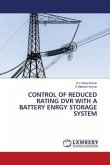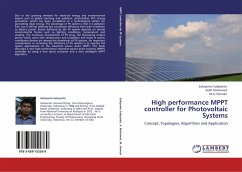The generation intermittency resultant from a large photovoltaic (PV) system connected to the power network introduces many challenges and impacts in terms of power quality, stability, and reliability of the power network. There is a need to reduce or minimise the PV generation intermittency in order to integrate more PV generators and thus allows larger penetration of PV-based renewable resources to the utility network. In this book, storage technology has been used to provide solutions for the problems related to integrating the intermittent PV generation to the utility grid. The heuristic optimisation approaches of the control system in hybrid photovoltaic with battery energy storage (PV/BES) system are introduced which minimises the output power fluctuation of the PV system connected to the utility grid. While smoothing out the output of PV/BES system, the net power is dispatched to the power network on an hourly basis like a conventional generator.
Bitte wählen Sie Ihr Anliegen aus.
Rechnungen
Retourenschein anfordern
Bestellstatus
Storno








